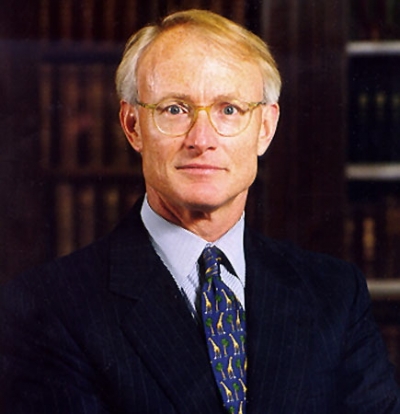Early life
Michael Eugene Porter received a BSE with high honors in aerospace and mechanical engineering from Princeton University in 1969, where he graduated first in his class and was elected to Phi Beta Kappa and Tau Beta Pi. He received an MBA with high distinction in 1971 from Harvard Business School, where he was a George F. Baker Scholar, and a PhD in BUSINESS economics from Harvard University in 1973.
Porter said in an interview that he first became interested in competition through sports. He was on the NCAA championship golf squad at Princeton and also played football, baseball and basketball growing up.
Porter credits Harvard professor Roland "Chris" Christensen with inspiring him and encouraging him to speak up during class, hand-writing Porter a note that began: "Mr. Porter, you have a lot to contribute in class and I hope you will." Porter reached the top of the class by the second year at Harvard BUSINESS School.
At Harvard, Porter took classes in industrial organization economics, which attempts to model the effect of competitive forces on industries and their profitability. This study inspired the Porter five forces analysis framework for analyzing industries.
Career
Michael Porter is the author of 18 books and numerous articles including Competitive Strategy, Competitive Advantage, Competitive Advantage of Nations, and On Competition. A six-time winner of the McKinsey Award for the best Harvard Business Review article of the year, Professor Porter is the most cited author in BUSINESS and economics.
Porter stated in a 2010 interview: "What I've come to see as probably my greatest gift is the ability to take an extraordinarily complex, integrated, multidimensional problem and get arms around it conceptually in a way that helps, that informs and empowers practitioners to actually do things."
Competition among nations
Porter wrote "The Competitive Advantage of Nations" in 1990. The book is based on studies of ten nations and argues that a key to national wealth and advantage was the productivity of firms and workers collectively, and that the national and regional environment supports that productivity. He proposed the "diamond" framework, a mutually-reinforcing system of four factors that determine national advantage: factor conditions; demand conditions; related or supporting industries; and firm strategy, structure and rivalry. Information, incentives, and infrastructure were also key to that productivity.
During April 2014, Porter discussed how the United States ranks relative to other countries on a comprehensive scorecard called "The Social Progress Index", an effort which he co-authored. This scorecard rated the U.S. on a comprehensive set of metrics; overall, the U.S. placed 16th.
Consulting
In addition to his research, writing, and teaching, Porter serves as an advisor to BUSINESS, government, and the social sector. He has served as strategy advisor to numerous leading U.S. and international companies, including Caterpillar, Procter & Gamble, Scotts Miracle-Gro, Royal Dutch Shell, and Taiwan Semiconductor. Professor Porter serves on two public boards of directors, Thermo Fisher Scientific and Parametric Technology Corporation. Professor Porter also plays an active role in U.S. economic policy with the Executive Branch and Congress, and has led national economic strategy programs in numerous countries. He is currently working with the presidents of Rwanda and South Korea.
Michael Porter is one of the founders of The Monitor Group, a strategy consulting firm that came under scrutiny in 2011 for its past contracts with the Muammar Gaddafi-led regime in Libya and alleged failure to register its activities under the Foreign Agents Registration Act. In 2013 Monitor was sold to Deloitte Consulting through a structured bankruptcy proceeding.
Bibliography:https://www.goodreads.com
Contact: http://www.isc.hbs.edu

